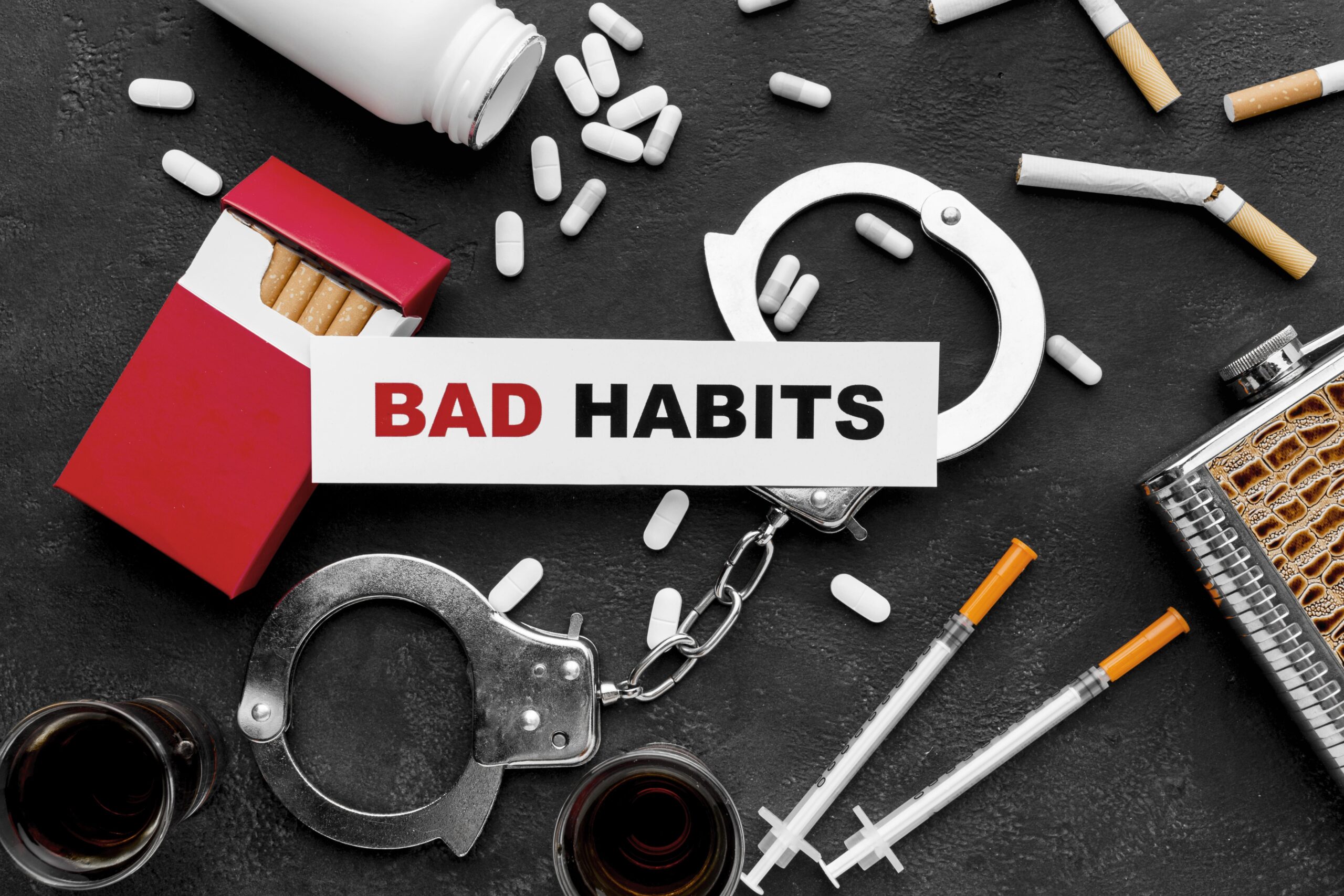Introduction:
In the intricate tapestry of human experience, addiction stands as a formidable thread, weaving its way into the lives of millions worldwide. Whether rooted in substances or behaviors, addiction holds individuals in its grip, steering them through a tumultuous journey of compulsion and consequence. In this exploration, we embark on a voyage into the psychology of addiction, untangling its complexities and illuminating the path to recovery.
Deciphering Addiction:
At its essence, addiction manifests as a relentless pursuit of pleasure, despite the toll it exacts on one’s life. Whether ensnared by substances like drugs and alcohol or behaviors like gambling and gaming, individuals find themselves ensnared in a cycle of craving, consumption, and consequence. This pattern, driven by changes in the brain’s reward circuitry, culminates in a loss of control and a spiraling descent into addiction’s clutches.

Peering into the Brain:
To comprehend addiction’s grip, we must peer beneath the surface of the brain’s intricate machinery. At its heart lies the reward pathway, fueled by the neurotransmitter dopamine, which orchestrates our experiences of pleasure and motivation. When activated, this circuitry reinforces behaviors that bring pleasure, laying the foundation for addiction’s insidious hold. Over time, however, the brain’s delicate balance is disrupted, leading to tolerance, cravings, and compulsive seeking of the addictive substance or behavior.
Genetics and Environment:
While genetics can predispose individuals to addiction, environmental factors also play a pivotal role in its development. Adverse childhood experiences, trauma, and socio-economic disparities can sow the seeds of addiction, while exposure to substances at an early age can rewire the brain’s reward system, priming it for addiction’s grasp. Understanding the interplay between genetics and environment unveils the intricate tapestry of addiction’s origins.
The Vicious Cycle:
Addiction’s grip tightens through a cyclical dance of craving, consumption, and withdrawal. Cravings, fueled by the brain’s rewiring, drive individuals to seek out their substance or behavior of choice, setting in motion a relentless cycle of use and withdrawal. Tolerance builds over time, necessitating higher doses to achieve the same effects, perpetuating the cycle of addiction and deepening its hold.
Confronting Stigma:
Despite strides in understanding addiction as a disease, stigma and misunderstanding persist, casting a shadow over the journey to recovery. Addiction is often stigmatized as a moral failing or lack of willpower, rather than a complex interplay of biology, psychology, and environment. This stigma can erect barriers to seeking help and support, compounding the challenges faced by individuals on the path to recovery.
The Road to Recovery:
Recovery from addiction is a journey fraught with challenges yet brimming with hope. It begins with acknowledging the problem and reaching out for support from loved ones, healthcare professionals, and peer support groups. Treatment approaches vary, encompassing therapy, medication-assisted treatment, and holistic modalities such as mindfulness and exercise, tailored to the individual’s needs and preferences.
The Power of Support:
Support from friends, family, and the community is a cornerstone of recovery, offering solace, encouragement, and understanding along the way. Peer support groups like Alcoholics Anonymous and Narcotics Anonymous provide a lifeline, fostering connections with others who share similar struggles and triumphs. Together, individuals in recovery find strength in solidarity, buoyed by the knowledge that they are not alone in their journey.
Unearthing Underlying Trauma:
Recovery from addiction often entails confronting underlying psychological and emotional wounds that fuel addictive behavior. Therapy, including cognitive-behavioral therapy (CBT) and trauma-informed approaches, provides a safe space for individuals to explore past traumas, develop coping skills, and rewrite their narratives of resilience and healing. By addressing the root causes of addiction, individuals pave the way for lasting recovery and newfound freedom.
The Beacon of Hope:
While the path to recovery may be fraught with obstacles, it is also illuminated by the beacon of hope. Each step forward, no matter how small, heralds a victory in the battle against addiction, a testament to the indomitable spirit of the human soul. With perseverance, compassion, and a commitment to change, individuals can transcend the shackles of addiction, reclaiming their lives and charting a course towards a brighter, healthier future.
Conclusion:
Addiction, with its labyrinthine depths and formidable grip, stands as a testament to the resilience and complexity of the human experience. By unraveling its mysteries and embracing the journey of recovery, individuals can break free from its clutches and emerge stronger, wiser, and more empowered than before. Let us journey together, shedding light on the path to healing and transformation, and forging a future where hope reigns supreme.

